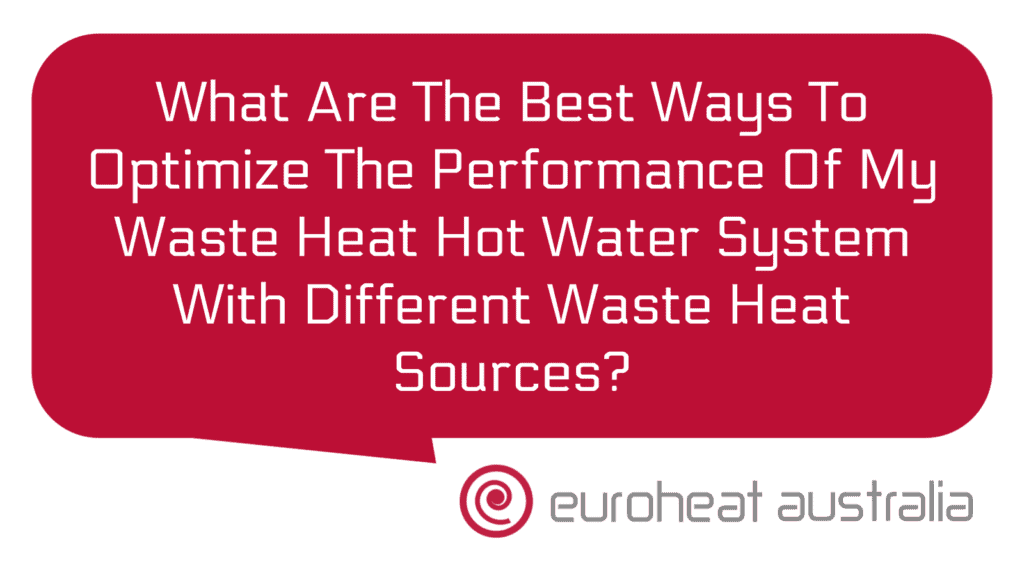Are you looking for ways to optimize the performance of your waste heat hot water system? With different waste heat sources, there are a variety of ways to maximize efficiency and reduce energy costs. In this article, we’ll discuss some of the best options available and how they can help you save on energy bills while still providing reliable hot water.
First, let’s talk about the importance of proper design and installation when it comes to optimizing waste heat hot water systems. It’s essential that your system is designed with the right type of equipment, correctly sized and correctly installed. This will help ensure that your system runs efficiently and effectively without any issues. If you need assistance in this area, then consider seeking out the expertise of Euroheat Australia in Perth – they have over 30 years experience designing, constructing hydronic heating & cooling systems.
Once you have taken care of the design and installation aspect, one way to optimize your waste heat hot water system is by utilizing different types of waste heat sources. These sources could include things like solar energy from photovoltaic panels or even heat from an industrial process or manufacturing plant. By utilizing multiple sources of waste heat, you can better spread out the load on your system so that it runs more efficiently and minimizes energy costs.
Another important factor when optimizing a waste heat hot water system is insulation. Insulation helps keep hot water in the tank for longer periods of time so that you don’t have to continually reheat it as often – ultimately saving money on both fuel bills and labor costs associated with re-heating. Additionally, make sure that any exposed pipes are properly insulated as well since exposed pipes can lose a lot of heat if not properly insulated.
Finally, one other way to optimize your waste heat hot water system is by installing a Heat & Chill Recovery System (HCR). This type of system takes advantage of wasted energy from cooling processes such as air conditioning units or refrigeration systems and recovers it for use in heating applications such as domestic hot water systems or space heating systems. By doing this, you can significantly reduce energy consumption while still providing reliable hot water – resulting in an estimated 10-15% decrease in electricity bills!
In conclusion, there are several ways to maximize efficiency when it comes to optimizing a waste heat hot water system with different sources – proper design & installation; utilizing multiple sources; insulation; and installing a Heat & Chill Recovery System (HCR). All these measures help ensure reliable hot water while also reducing operational costs at the same time – saving money on both fuel bills and labor costs associated with re-heating! For expert advice regarding design & installation services, contact Euroheat Australia in Perth today – with their 30 years experience designing & constructing hydronic heating & cooling systems, they’re sure to have the perfect solution for your home!





